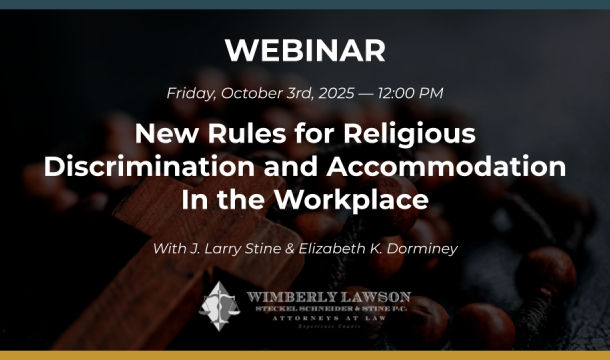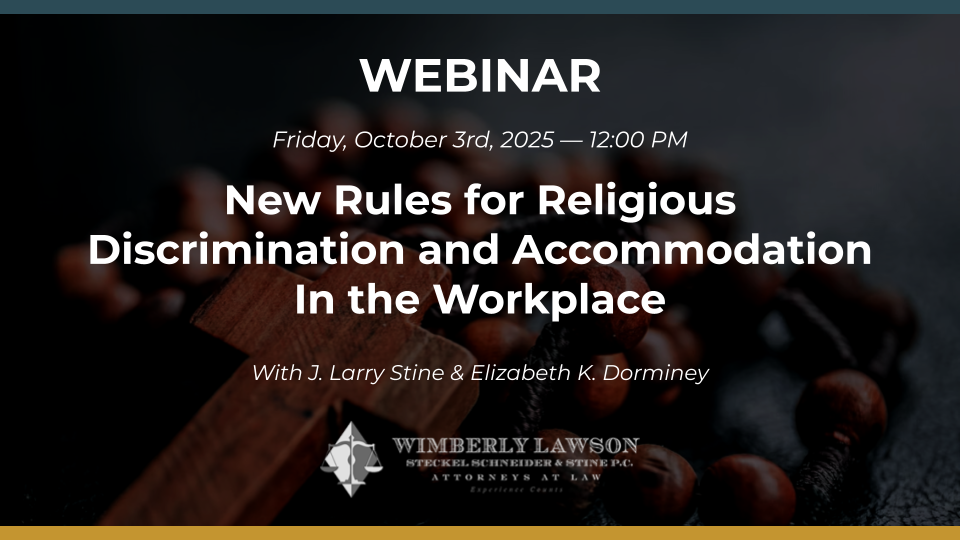Volunteer or Employee? Get It In Writing.
Volunteer or employee? A recent case out of the 6th Circuit answers this question for a group of adults who volunteered at a church's for-profit restaurant business. (Acosta v. Cathedral Buffet, Inc., 6th Cir., No. 17-3427, opinion issued 4/16/18).
The Department of Labor (DOL) sued the Cathedral Buffet because it relied heavily on work performed by recruited church volunteers. The U.S. District Court for the Northern District of Ohio ruled in favor of the DOL in March 2017, finding that the church members were coerced into volunteering at the restaurant and awarded the Labor Department a total of $388,508.
The 6th Circuit Court of Appeals reversed that decision and held that the district court did not apply the proper analysis to the situation. According to the Circuit Court decision, the first step in the analysis must be to decide if adult workers expect compensation for their work. Only if a worker expects compensation may a court then "assess the economic realities of the working relationship," the decision went on to say. Under the Fair Labor Standards Act, courts look at the "economic realities" of an employer-worker relationship to determine if minimum wage and/or overtime is payable.
In Cathedral Buffet's case, the recruited volunteers didn't accept wages, in-kind goods or services, or tips for their work. However, the evidence showed that they did not expect to, because they volunteered their work to further their religious beliefs, and several of them provided sworn affidavits to that effect.
The 6th Circuit distinguished this case from a case decided by the 10th Circuit in March 2018 in which a pecan ranch was ordered to pay $200,000 for using unpaid child labor through an arrangement with the Fundamentalist Church of Jesus Christ of Latter-Day Saints. In the 10th Circuit case, there was evidence that the children were coerced into working for the pecan ranch. (Acosta v. Paragon Contractors Corp., 10th Cir., No. 17-4025, 3/13/18).
Pro tip: Want to avoid trouble with the DOL? Prepare documentation for a volunteer to sign that acknowledges that the volunteer does not expect compensation for his/her work and why (i.e., religious conviction, service to the community or a particular cause, etc.).

Kathleen J. Jennings is a former principal in the Atlanta office of Wimberly, Lawson, Steckel, Schneider, & Stine, P.C. She defends employers in employment matters, such as sexual harassment, discrimination, Wage and Hour, OSHA, restrictive covenants, and other employment litigation and provides training and counseling to employers in employment matters.
Related Content
Get Email Updates
Recent Content

Trump Nominates Appointments to NLRB and EEOC but Policy Changes Likely to Be Delayed

DOL Launches Self-Audit Programs Designed to Help Employers Improve Compliance

DOL Must Release EEO-1 Reports to the Public under Open Records Laws

Current Advice on Active-Shooter Situations

New Policy for Federal Workers and Religious Expressions

